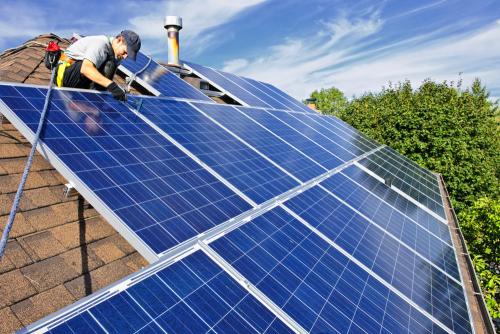Solar panel cooling method
Solar panel (also called solar modules) A plurality of solar cells are assembled in the solar power system and are the most important part of the solar power system. However, the temperature of the panel may be too high during use. The following describes how to cool the solar panel.
The air is passed between two metal plates, and the collector is cooled by air, wherein the blackened upper plate is attached to the PV cell. The material used to attach the battery to the absorbing plate must be a thermally conductive material and an insulating material. The solar cell can be either round or rectangular. A rectangular battery can cover the entire area of the absorbing plate as much as possible. The black one-piece silicon solar cell is also a good heat absorbing panel.
The inlet temperature of the cooling water is usually 293K, and the outlet temperature increases linearly. The output power of a PV/T solar system is a function of ambient irradiance and temperature of the photovoltaic module. The output power depends not only on the intensity of the thermal radiation, but also on the amount of spectral radiation and the electronic critical point of the component. The temperature can be measured with a Pt100 platinum thermocouple, and the irradiance can be recorded using a daylight intensity meter and a crystalline silicon ESTI sensor.




